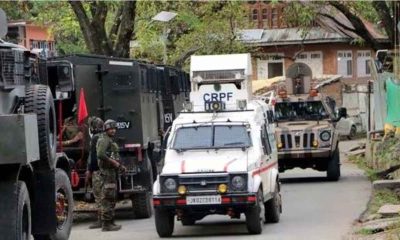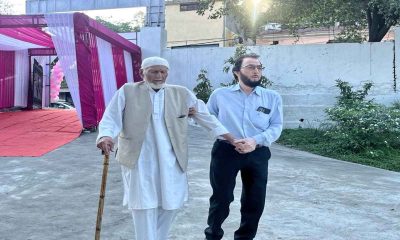India News
Death of two cadets within three days questions Army’s screening process
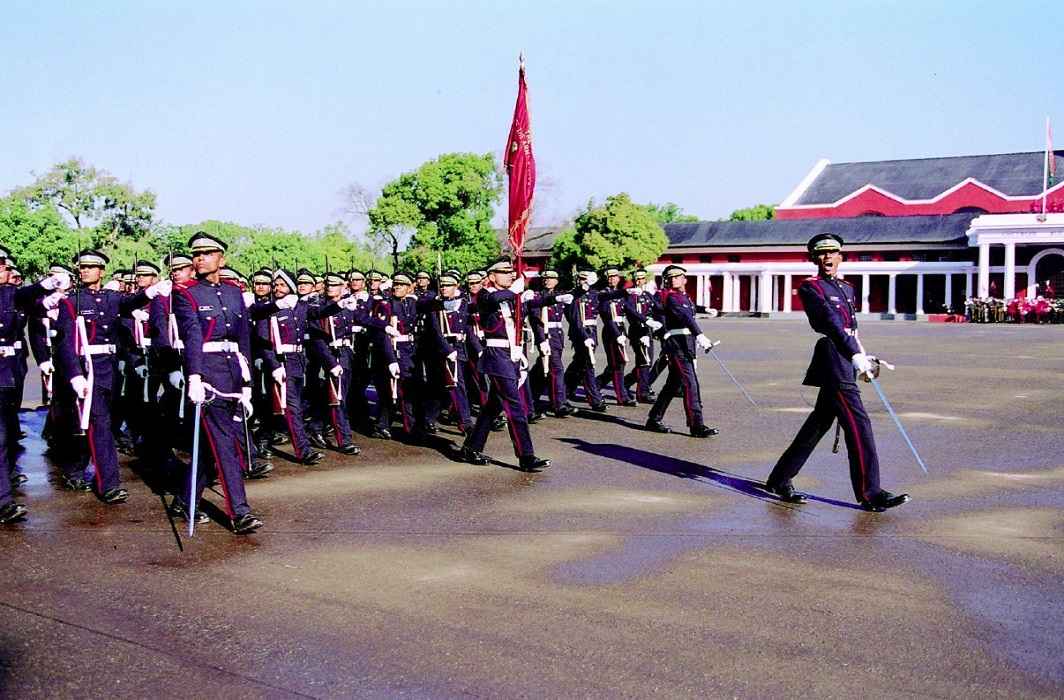
[vc_row][vc_column][vc_column_text]Seven gentleman cadets had collapsed during a training process on Friday; two of them succumbed during treatment while the rest five are reportedly stable
The death of two cadets of the prestigious Indian Military Academy within three days of participation in a 10-km run has raised serious questions about the way the cadets are screened before being inducted into the academy.
Gentleman cadets Deepak Sharma and Nabin Kumar passed away on August 18 and 20 respectively after both collapsed during the training exercise.
According to the IMA, seven cadets had collapsed on Friday during a “routine 10-km run” being conducted in the general area of Badshahi Bagh in Saharanpur district of UP.
“During the runback of the exercise, seven gentlemen cadets fell unwell due to dehydration. These cadets were administered first aid by Medical Officer at the location and (six of them) evacuated in specialised ambulances with paramedic support to the Military Hospital in Dehradun,” Army said in a statement.
Of the seven, Deepak Sharma (22) from Bathinda, Punjab, was rushed to the nearest local hospital in Vikasnagar, in Dehradun district, in a “critical” condition, where he died the same day.
Of the other six, Nabin Kumar Chhetri (23) from Darjeeling, West Bengal, was referred to Dehradun-based Shri Mahant Indiresh Hospital, where he died late Saturday night, according to a statement issued by the IMA on Monday.
The remaining five GCs admitted at the Military Hospital were reportedly “stable”.
The incident has brought into the fore the serious lapse in evaluating physical fitness of the candidates and failure of officials to test them properly during the screening process.
Commenting on the incident, retired and serving Army officers labeled the incident as “alarming” and questioned the existing selection process.
Expressing anguish over the incident, Lt General Gambhir Negi said there was a need for more efficient tests for physical fitness before the induction of the candidate into the academy.
“There have been no such cases when I was a cadet and later the commandant at the academy. We would get tired during training but never reached a point of collapse,” he said.
Retired Colonel S C Tyagi also called for a stricter induction process and blamed the “lifestyle choice” of the youth for decreasing strength and endurance in them.
However, the cause of death of the two cadets is yet to be established. Citing sources, a report in Hindustan Times said the postmortem reports have failed to establish the cause of death of the two cadets.
According to the report, the viscera of the dead has been preserved for further examination to establish the cause.[/vc_column_text][/vc_column][/vc_row][vc_row][vc_column][vc_column_text css=”.vc_custom_1503403330861{padding-top: 5px !important;padding-right: 5px !important;padding-bottom: 5px !important;padding-left: 5px !important;background-color: #cecece !important;border-radius: 10px !important;}”]
Incident brings Army’s discriminatory compensation policy into light
Apart from the screening process, the incident has also brought Army’s discriminatory compensation scheme into focus. A report in a national daily shows disparity in the compensation given to officer trainees of the civil department as compared to the defence departments.
In the wake of latest incident, several former cadets who sustained disability during training have raised the issue in social media and through signature campaigns.
Unlike the trainees of the civil side, the Ministry of Defence does not recognise officer trainees of defence services as government employees. And hence such trainees only receive “monthly ex-gratia payment” instead of proper disability or family pension on death.
“The amount happens to be less than what is admissible even to a Sepoy of the Army, a Constable of Police or even a peon of any department,” says Lt Col SS Sohi (retd), president of Ex-Servicemen Grievances Cell.[/vc_column_text][/vc_column][/vc_row]
2024 Lok Sabha Elections
Lok Sabha elections 2024: 102-year-old man walks to polling booth to cast his vote in Jammu
The lowest voter turnout so far was noted in Ramgarh at 1.53%.
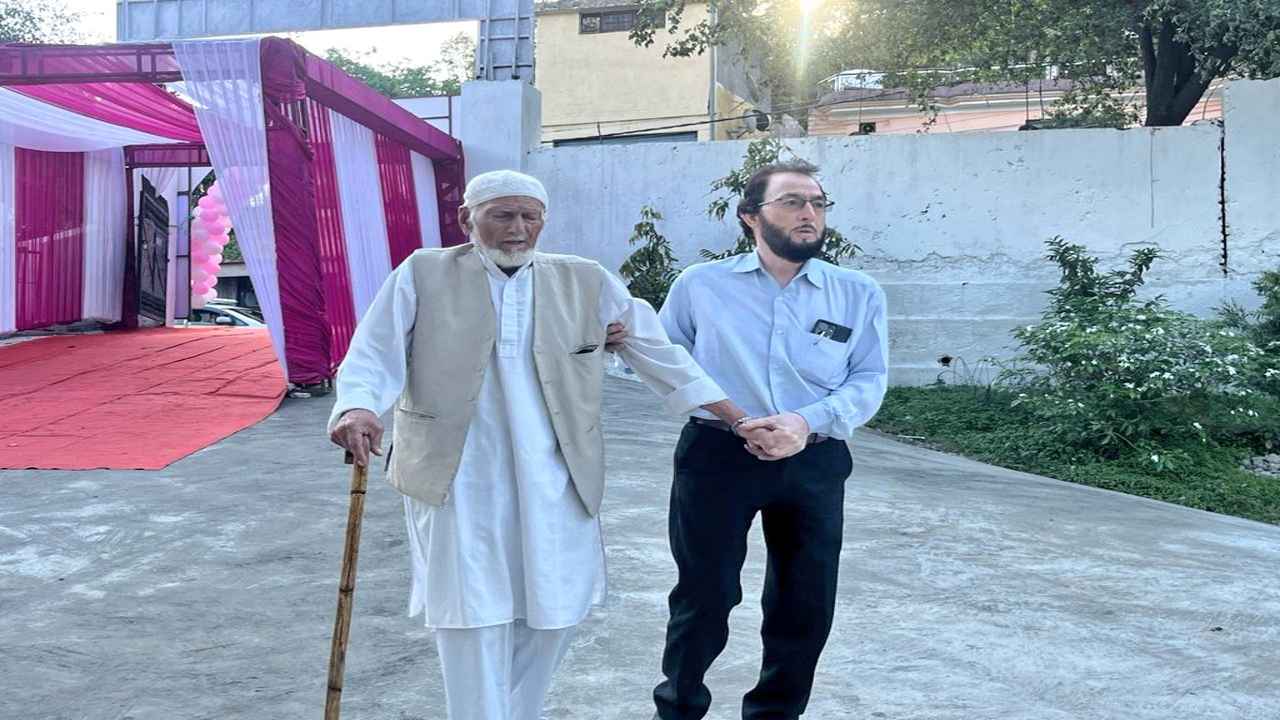
A 102-year-old man showed up at a Jammu polling place to cast his vote in the second phase of the Lok Sabha elections on Friday. Haji Karam Din arrived at the Reasi district polling place in the Jammu constituency with a walking stick in hand and a family member who assisted him with the pre-voting process.
Haji Karam Din, who is 102-year-old, showed his inked finger and posed for pictures outside the polling booth after casting his vote. He said voting at this polling place at this age makes him very happy. He has always cast his vote. Even at the age of 102, this experience is still ongoing, he said.
Reasi district is a part of the Jammu parliamentary constituency, and 22 candidates are up for vote with around 17.81 lakh eligible voters.
BJP’s sitting member Jugal Kishore Sharma is aiming for a third term in office following wins in the elections of 2014 and 2019. Former minister and Congress candidate Raman Bhalla is his main opponent.
Voting in the Jammu-Reasi Lok Sabha constituency began with eager voters showing up at the polling places. Some of them were wearing traditional Dogra attire.
In 2,416 polling places around the constituency, voting got underway at 7 a.m., and 10.39% of the total votes were cast by 9 a.m. In the 2019 Lok Sabha elections, Jammu recorded a 74% voter turnout.
Following the repeal of Article 370 and the division of the former state into two Union Territories five years ago, this is Jammu’s first significant election.
The Akhnoor segment received the highest percentage of votes, 14.24%, followed by Reasi (14.13%), Gulabgarh (13.53%), Shri Mata Vaishnodevi (12.71%), Marh (12.31%), Samba (8.56%), R S Pura Jammu South (8.17%), and Suchetgarh (5.67%), according to the officials. Ramgarh recorded the lowest voter participation of 1.53% so far.
Low attendance was observed in the border areas of the districts of Jammu and Samba till nine in the morning, according to poll data.
The officials said that big lines of voters were observed at several polling places throughout Jammu city. Voters were observed heading towards polling places early in the morning.
India News
Salman Khan house firing case: NIA interrogates arrested shooters Sagar Pal, Vicky Gupta for three hours
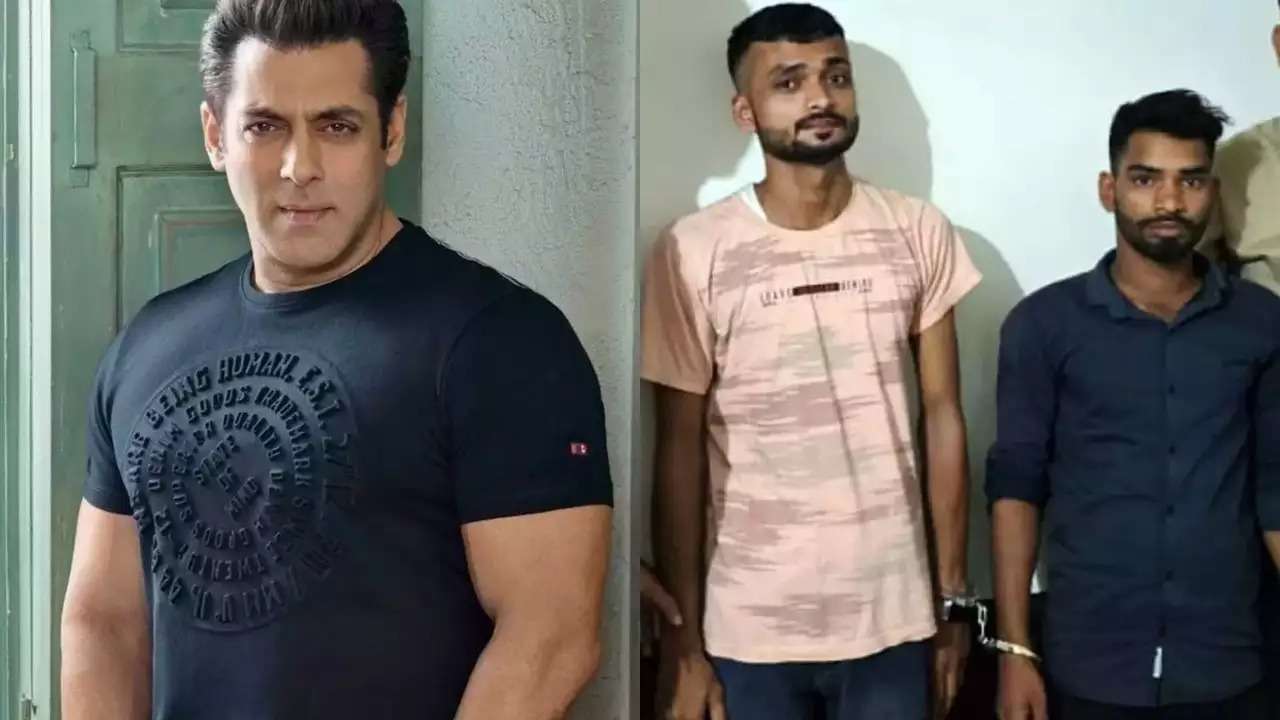
The investigation into the shocking firing incident that took place outside Salman Khan’s house on April 14 keeps bringing new updates with every passing day. In this case, Sagar Pal and Vicky Gupta, the two suspected shooters, have already been taken into custody.
The two shooters have reportedly been questioned by the National Investigation Agency (NIA), according to a new development. Every day that goes by, more information is revealed about the inquiry into the shocking firing incident that happened outside Salman Khan’s house on April 14. Sagar Pal and Vicky Gupta, the two accused shooters, are being held in custody after their first arrests.
It was recently discovered that the two shooters were questioned by the National Investigation Agency (NIA).
NIA has reportedly begun questioning Sagar Pal and Vicky Gupta, who were detained a few days ago for firing openly outside Salman Khan’s Galaxy Apartments in Mumbai, according to a recent update posted on their X (Twitter) account. NIA has interrogated shooters Vicky Gupta and Sagar Pal, arrested in the firing case, the tweet said.
According to the reports, two Punjabi residents were taken into custody by the Mumbai Crime Branch yesterday on suspicion of being involved in the recent shooting incident outside the house of Bollywood actor Salman Khan.
The two men, Sonu Subhash Chander and Anuj Thapan, provided guns to Sagar Pal and Vicky Gupta, the shooters, according to information released by the Mumbai Crime Branch. It was also reported that they had communication with the Bishnoi gang. For those who don’t know, hours after the incident, Anmol Bishnoi, the brother of gangster Lawrence Bishnoi, allegedly took credit for the firing in a Facebook post.
The shooters’ custody has been extended by Mumbai’s Esplanade Court until April 29.
Meanwhile, on the workfront Salman Khan was last seen in Tiger 3 alongside Katrina Kaif.
2024 Lok Sabha Elections
PM Modi calls for high voter turnout in second phase of Lok Sabha elections 2024, says your vote is your voice
Prime Minister Narendra Modi urges citizens to participate in record numbers during the second phase of polling for the Lok Sabha Elections 2024.
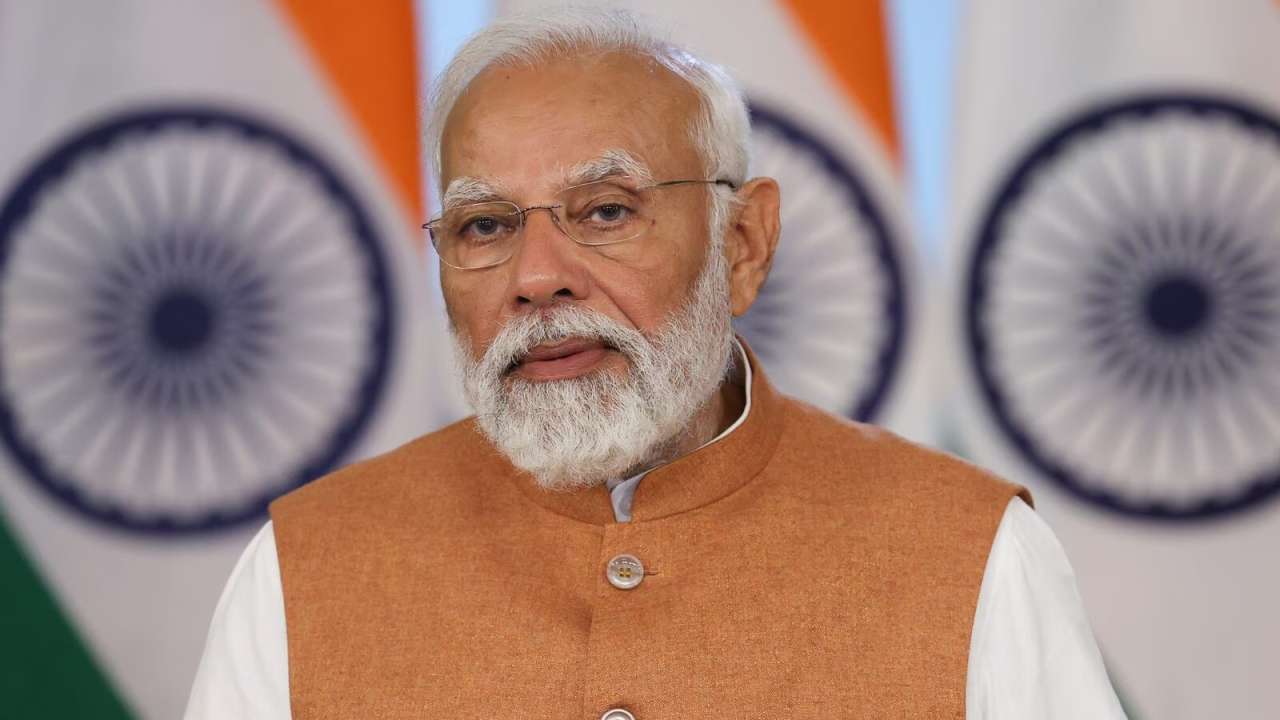
Prime Minister Narendra Modi took to social media as the second phase of voting for the Lok Sabha Elections of 2024 got underway across the country to encourage voters to cast votes in huge numbers. PM Modi emphasized in his speech the value of voting in preserving democracy and notably urged women and young people to cast votes.
Taking to social media X, formerly Twitter, PM Modi wrote, urging everyone in constituencies to participate in record numbers in today’s second phase of the Lok Sabha elections. He said our democracy is strengthened by high voter turnout. He especially urged female and youth voters to cast votes in large numbers. Your vote is your voice, he added.
It is important to remember that 88 Lok Sabha constituencies—spread among 13 states and Union Territories—are presently holding polls. Twenty seats in Kerala, fourteen in Karnataka, thirteen in Rajasthan, eight in Uttar Pradesh and Maharashtra, six in Madhya Pradesh, five in Assam and Bihar, three in Chhattisgarh and West Bengal, and one in each of Tripura, Jammu & Kashmir, and Manipur are currently up for election. Notably, the untimely death of a Bahujan Samaj Party (BSP) candidate has resulted in the Madhya Pradesh constituency of Betul being spared from voting on April 26.
Meanwhile, Chief Election Commissioner Rajiv Kumar emphasized the thorough planning that has taken place over the previous two years and reassured the public of careful security measures at every voting place. They have been preparing for the last two years, he said. At each booth, the arrangements are ready. Everything has been prepared for the voters, including fans and drinking water. Voters must turn out to cast their votes. Safety has been considered. There is zero information available anywhere regarding violence. However, there will be forces at every booth.
-
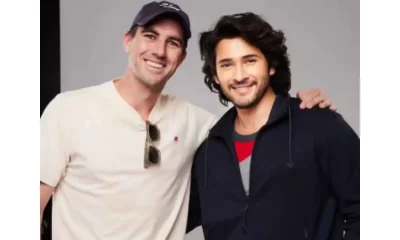
 Cricket news21 hours ago
Cricket news21 hours agoTelugu superstar Mahesh Babu meets SRH captain Pat Cummins, says it is an absolute honour
-

 Entertainment24 hours ago
Entertainment24 hours agoAamir Khan to begin shooting in Delhi for Sitaare Zameen Par next month
-
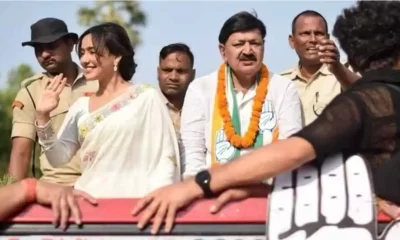
 2024 Lok Sabha Elections24 hours ago
2024 Lok Sabha Elections24 hours agoBollywood actor Neha Sharma campaigns for her father Ajit Sharma in Bhagalpur, Bihar
-

 Cricket news22 hours ago
Cricket news22 hours agoAB De Villiers criticizes RCB’s decision to let go Yuzvendra Chahal, says it was a hearbreaking moment
-
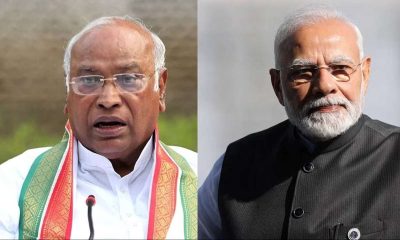
 2024 Lok Sabha Elections21 hours ago
2024 Lok Sabha Elections21 hours agoMallikarjun Kharge writes to PM Modi seeks time to explain Congress’s Nyay Patra
-
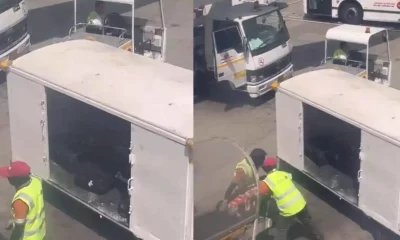
 Trending20 hours ago
Trending20 hours agoSocial media user shares video of Air India ground staff throwing expensive musical instruments, video goes viral
-
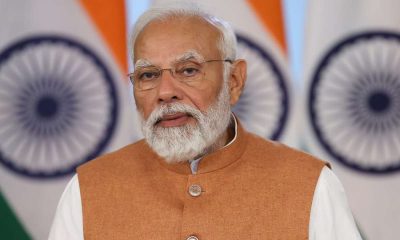
 2024 Lok Sabha Elections4 hours ago
2024 Lok Sabha Elections4 hours agoPM Modi calls for high voter turnout in second phase of Lok Sabha elections 2024, says your vote is your voice
-
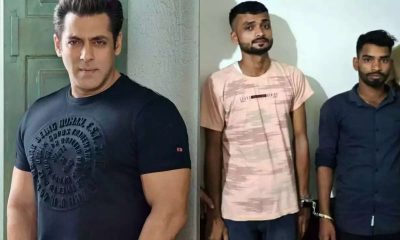
 India News3 hours ago
India News3 hours agoSalman Khan house firing case: NIA interrogates arrested shooters Sagar Pal, Vicky Gupta for three hours





